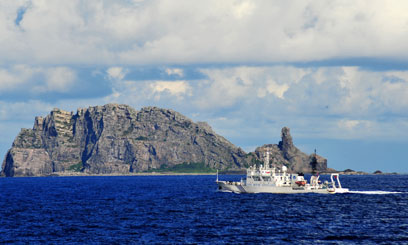
The Diaoyu Islands “nationalization” is just the latest provocation from Japan to have strongly reminded Chinese of the wartime past/XINHUA
There have been repeated commemorations of what happened between China and Japan at the time of the signing of the unequal Treaty of Shimonoseki and during World War II (WWII). They show that the history between the two countries is so dense that, without a correct and shared understanding of the past, they cannot move forward.
On Sept. 18, 1931, Japanese troops blew up a section of the railway under its control near Shenyang, then accused Chinese troops of sabotage as a pretext for war. They bombarded the barracks of Chinese troops near Shenyang the same evening, thus starting a large-scale armed invasion of northeast China.
Four months later, Japanese troops occupied 1.28 million km of Chinese territory in northeast China, 3.5 times the landmass of the whole of Japan.
The incident was also followed by Japan’s full-scale invasion of China and the rest of Asia, and a 14-year war of resistance against Japanese aggression.
The brutal invasion plunged China into an unprecedented disaster, in which half of its territory was enveloped in the fire of war and more than 35 million soldiers and civilians were killed.
Although Japan as the invader initiated the conflict, its people suffered a lot from the war. The two peoples are all victims of militarism and fascism.
Today’s Chinese cannot reverse time and alter the past, but they feel responsible for preventing history from repeating itself. They expect the Japanese and their government to join in the cause.
An important gesture from Japan to show its commitment to peace is to stick to the promises it made and treaties it signed on the occasion of the country’s surrender at the end of WWII, including those about the territorial issues.
However, the recent Diaoyu Islands “nationalization” plan by the Japanese government is a clear violation of what it had accepted in 1945.
After the end of WWII, in accordance with the Cairo Declaration and the Potsdam Proclamation, China recovered Taiwan, the Penghu Islands and other territories which Japan had occupied, meaning the Diaoyu Island and its affiliated islets were returned to China in terms of international law.
The Diaoyu Islands “nationalization” is just the latest provocation from Japan to have strongly reminded Chinese of the wartime past.









































